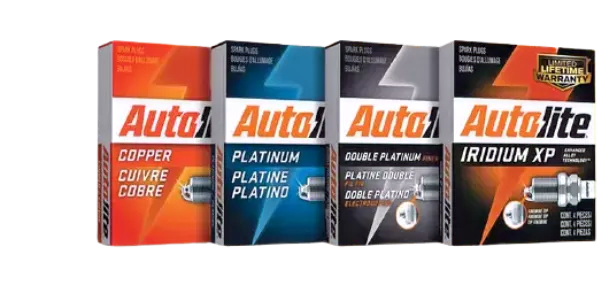What's the Difference Between a spark plug and a coil?
- Autolast Ghana

- Nov 19, 2022
- 3 min read
Updated: May 3, 2024
What's the Difference Between a spark plug and a coil? A spark plug is a device that allows an internal combustion engine to create an electrical spark. A spark plug's job is to ignite the air-fuel mixture. A spark plug is made up of two electrodes: a center electrode and a ground.
A coil is a device that you connect to your spark plug to create more power.
In the ignition system of a vehicle, an ignition coil (also known as a spark coil) is an induction coil that converts the battery's voltage to the thousands of volts required to produce an electric spark in the spark plugs that ignites the gasoline.
Some coils come equipped with an inbuilt resistor, while others rely on a resistor wire or an external resistor to control the amount of current that may enter the coil from the 12-volt supply of the automobile. The high-voltage wires that go from the distributor to each spark plug and the wire that connects the ignition coil to the distributor are together referred to as spark plug wires or high-tension leads. No spark, no bouncing current.

A spark plug keeps your engine running continually. Before being injected into the combustion chamber of a gasoline vehicle, the fuel is combined with the intake air in the throttle body. Your engine's gasoline is ignited by the spark plug using the spark that the coil produces.

Swapping components is another easy approach to determine if the problem is with the coil or the spark plug. The current wouldn't be able to leap across the electrode gap of the spark plug without such a high voltage. Connect the suspicious ignition coil to a new plug with new wire as you'll probably need to change the spark plugs anyhow. The ignition coil delivers a high-voltage charge to the spark plug, which sparks and ignites the fuel-air combination. Power transistors are used in more contemporary electronic ignition systems to deliver pulses to the ignition coil. When the engine is running slowly or in cold weather with rich air-fuel mixes, a spark plug that was chosen for a too-cool heat range may start to foul. By running the engine at greater speeds to obtain the self-cleaning temperature, the insulator nose can occasionally be cleaned. The spark plug may need to be replaced if it is entirely fouled and the engine won't run properly. The fouling reason should also be determined.
If ignored, this might become a significant problem since a poorly functioning automobile can harm the catalytic converter in the exhaust system. One ignition coil per cylinder may be used in a contemporary passenger car (or pair of cylinders), removing spark plug wires that are prone to failure and a distributor that directs high voltage pulses.
Engine misfires, backfires, a reluctance to start, less power, a higher thirst for petrol, or the stench of unburned gasoline are just a few symptoms of a defective ignition coil. All of your car's spark plugs will be impacted if it has a distributor-based ignition system, but if it has a computer-triggered ignition system, only one plug or two if they share a coil may be impacted.
The coil is likely to be placed directly to the spark plug, or nearby, in current automobiles with an electronic ignition system that utilizes a computer rather than a distributor to fire the spark plugs at the correct moment, eliminating the need for high voltage spark plug wires. This procedure is carried out hundreds of times every minute.
No, your ignition coil and spark plug are not the same item, nor do they serve the same purpose in the ignition system, despite the fact that they both play an important part in the ignition system. The ignition coil converts low voltage from your vehicle's battery to high voltage. If the idle RPM of your engine does not vary, the coil for that cylinder is on its way out. As a result, contemporary engines might contain several coils.
Why is the voltage so high? Because that is what drives the spark plugs.
#SparkPlugPower #CoilIgnition #EnginePerformance #EfficientCombustion #SmoothAcceleration #PowerfulIgnition #HighVoltage #OptimalSpark #ImprovedFuelEfficiency #EnhancedEnginePerformance



Bình luận